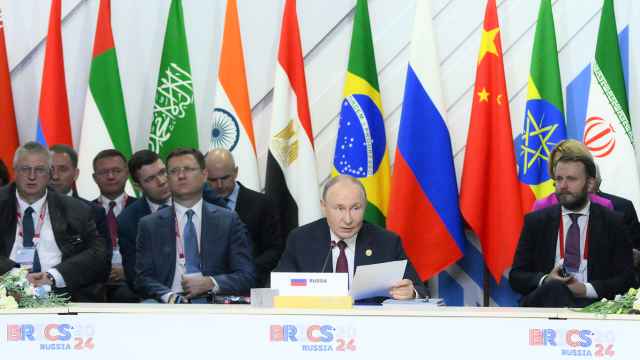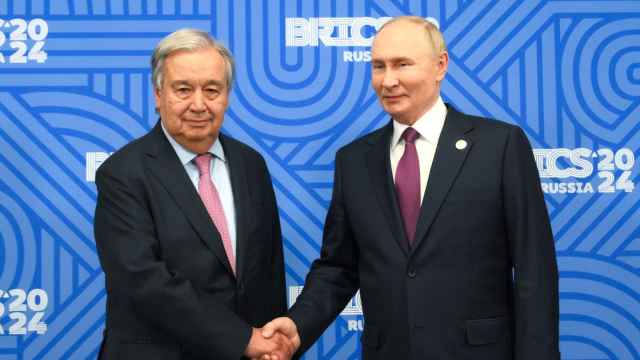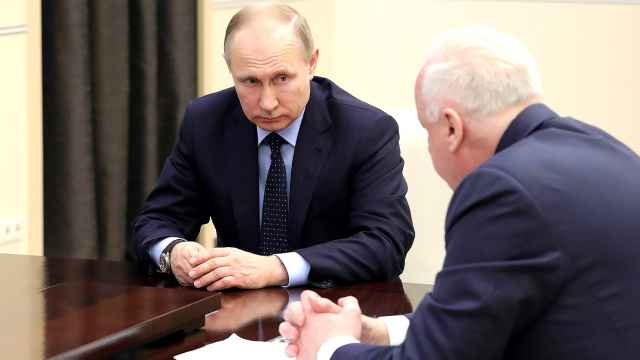 Konstantin Sonin
Konstantin SoninJudging by the current debate on education in Russia's schools and universities, it might seem that the most pressing problems are the need for a mandatory reading list and a uniform history textbook for schools, along with the personality traits of the education minister. I admit that these questions are interesting to discuss, but as a university professor who also teaches in high schools, there are questions that I believe are far more important. The sooner I get good answers to them, the better.
My first question is: How do we teach young people to cope in a world changing so quickly that the knowledge and skills they learn today will be outdated by the time they enter the job market?
My second question is: How do we get students of all ages to put away their mobile phones during class?
I am teaching at the joint undergraduate program of the New Economic School and the Higher School of Economics, both of which are considered elite institutions of higher education in Russia. Many of the students I teach won regional or even national competitions in economics or mathematics while they were in high school. During their freshman year, I teach an Introduction to Economics class in which they learn how to talk about economics and how to write a short essay on the subject. Their grade for that essay largely determines their grade for the course.
What bothers me is that students complain that the grading criteria for the essay are too vague, making the essay difficult to write. But when I give them a precise list of requirements for a good grade, the results are stunning: They fulfill the requirements for structure and content perfectly, cite all of the required literature and include exactly the number of references and quotations needed. What's more, our first-year students are extremely capable, and it is striking just how well they can adjust to the idiosyncrasies of the teacher.
But I'm not sure that this is a good thing. I would like them to be able to write outstanding essays with less detailed requirements. Doing exactly what the teacher said might be an appropriate task for high school students, but at the university level students should learn to manage in situations where the task is not spelled out in step-by-step instructions.
Labor market studies show that in the modern world, skills needed for specific jobs become outdated within only a few years. Worse, nobody can tell you which new skills are needed or when you should begin acquiring them to remain competitive. The ability to adjust to the demands of a particular teacher is one of the more obvious legacies of Russian schools where students can spend many years with the same teacher.
As for the question of mobile phones, the answer seems to be simple. I forbid them to use their phones for texting or games during the class. I do this not because they bother me. If they turn off the sound, they are not disruptive. I forbid them because they prevent the student from focusing on what I and their classmates say.
But does that create a problem for the students? Will they experience some form of "informational withdrawal symptoms" as a result? I don't know, but would like to learn the answer someday.
Konstantin Sonin is a professor at the New Economic School in Moscow and a columnist for Vedomosti.
A Message from The Moscow Times:
Dear readers,
We are facing unprecedented challenges. Russia's Prosecutor General's Office has designated The Moscow Times as an "undesirable" organization, criminalizing our work and putting our staff at risk of prosecution. This follows our earlier unjust labeling as a "foreign agent."
These actions are direct attempts to silence independent journalism in Russia. The authorities claim our work "discredits the decisions of the Russian leadership." We see things differently: we strive to provide accurate, unbiased reporting on Russia.
We, the journalists of The Moscow Times, refuse to be silenced. But to continue our work, we need your help.
Your support, no matter how small, makes a world of difference. If you can, please support us monthly starting from just $2. It's quick to set up, and every contribution makes a significant impact.
By supporting The Moscow Times, you're defending open, independent journalism in the face of repression. Thank you for standing with us.
Remind me later.





